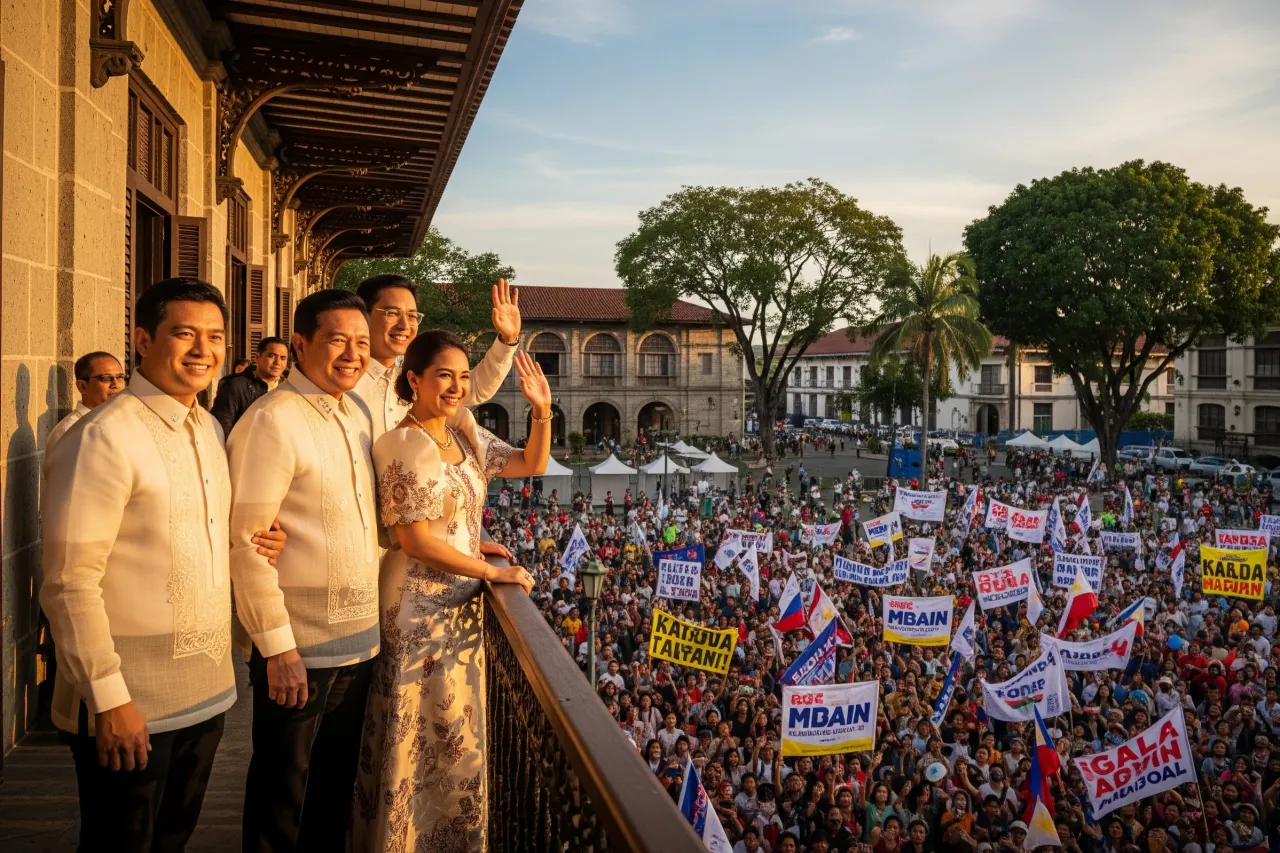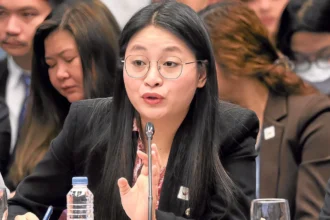👑 The Unshakable Reign of Political Families
Walk into any small-town plaza during campaign season and you’ll see familiar names plastered on every tarp, poster, and tricycle sticker. These aren’t just any names — they’re the same surnames your parents saw when they were your age… and in many towns, your grandparents too.
- 👑 The Unshakable Reign of Political Families
- 🏛 A Brief History of Power That Never Left
- 🗳 How Dynasties Keep Winning — The Blueprint of Power
- 📊 The Numbers Don’t Lie
- 💬 What Ordinary Filipinos Say
- ⚖ The Anti-Dynasty Law That Never Came
- 💔 The Cost of Political Monopoly
- ✊ Can Voters Break the Cycle?
- 🎭 Drama Behind the Campaign Curtain
- 🗣 The Whisper on the Streets
- 🚀 The Question That Haunts Every Election
Political dynasties are so deeply entrenched in the Philippines that the question isn’t “Will a dynasty win?” but rather “Which member of the dynasty will win this time?”
🏛 A Brief History of Power That Never Left
The roots of political dynasties in the Philippines run deep — far before hashtags and viral TikToks.
-
Spanish Colonial Era 🇪🇸 – Landed elites, or principalia, ruled local towns and passed influence to their heirs.
-
American Period 🇺🇸 – Elections were introduced, but guess who had the resources to run? The same elite families.
-
Post-War Politics 💼 – Political power was often “inherited,” with surnames carrying more weight than party platforms.
This legacy became so normalized that in some provinces, voting for a family outsider feels almost rebellious.
🗳 How Dynasties Keep Winning — The Blueprint of Power
Here’s the unspoken playbook dynasties have perfected over decades:
💰 1. Money Is Muscle in Philippine Elections
Campaigns are expensive. Flyers, ads, food for rallies, transportation for voters — all require deep pockets. Families already in power have both the funds and the political machinery.
🏘 2. Strong Local Networks
Mayors, barangay captains, and even school principals can be part of a family’s sphere of influence. These alliances ensure loyalty and control over local votes.
🧠 3. Name Recall Is Everything
In a crowded ballot, the name people recognize is often the one they choose. Dynastic surnames are brands, just like Coke or Jollibee.
🎁 4. Patronage Politics — The Filipino “Utang na Loob”
Road repairs, scholarship programs, and medical assistance become transactional — people feel indebted to the family in power.
📊 The Numbers Don’t Lie
According to various political studies, over 70% of Philippine lawmakers come from political families. In some provinces, every single top government position is held by related individuals.
| Position | Example of Dynasty Control | Years in Power |
|---|---|---|
| Governor | Passed from father to son | 20+ years |
| Mayor | Wife replaces term-limited husband | 18 years |
| Congressman | Brother replaces brother | 12 years |
💬 What Ordinary Filipinos Say
-
“Kahit sino basta hindi ka-apelyido ni…” — yet many still vote for the dynasty because “at least kilala na.”
-
“Kung hindi sila, sino pa?” — the idea that no alternative exists is powerful.
⚖ The Anti-Dynasty Law That Never Came
The 1987 Philippine Constitution actually has a provision to ban political dynasties… but only if Congress passes an enabling law. The twist? Congress is dominated by dynastic politicians — why would they end their own reign?
💔 The Cost of Political Monopoly
While not all dynasties are corrupt, the system they thrive in often discourages competition, transparency, and fresh leadership. The risks include:
-
🚫 Limited political diversity
-
💤 Complacency in governance
✊ Can Voters Break the Cycle?
It’s not impossible, but it’s uphill work. Some reform strategies include:
-
📢 Voter Education – Knowing the history and track record of candidates.
-
🗳 Support Grassroots Leaders – Give a fighting chance to those outside family politics.
-
📜 Push for the Anti-Dynasty Law – Though realistically, this will require massive public pressure.
🎭 Drama Behind the Campaign Curtain
Political dynasties aren’t just about governance — they’re family dramas in the public eye. Sibling rivalries, feuds between in-laws, and alliances sealed through marriage have been part of the spectacle for decades.
One mayor steps down after three terms? His spouse “reluctantly” runs. A brother loses a congressional seat? A cousin takes over. It’s succession planning disguised as democracy.
🗣 The Whisper on the Streets
“Hindi mo matatalo ang may pera at pangalan.”
“Kung makialam ka, baka mawalan ka ng trabaho.”
This quiet resignation among many Filipinos shows just how powerful the dynastic system is — it’s not just political, it’s cultural.
🚀 The Question That Haunts Every Election
Are political dynasties a symptom of a broken system, or simply a reflection of Filipino society’s deep trust in family ties? Until that’s answered — and acted upon — the same surnames will keep ruling the same towns, cities, and provinces.




